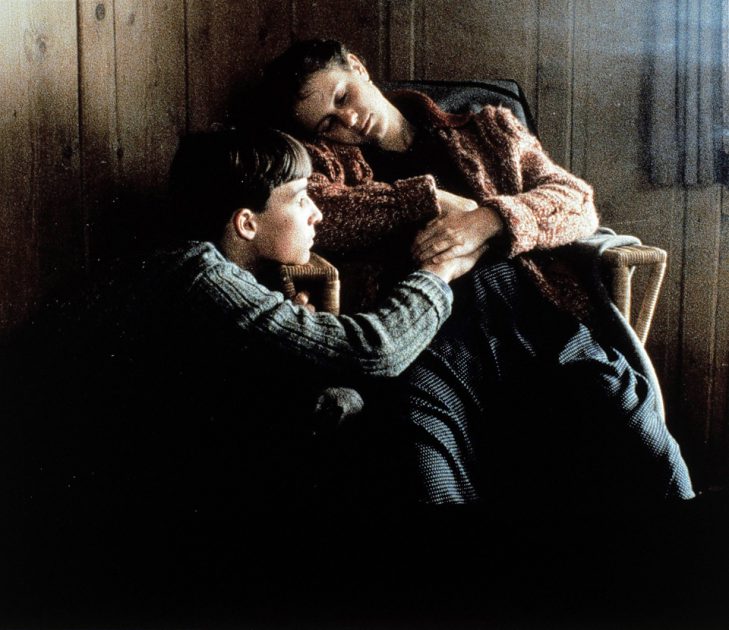Should incest still be considered a crime?

The Swiss government broke a taboo last year when it said it would consider lifting a ban on incest. The announcement launched a heated debate on the issue.
swissinfo.ch spoke to population genetics expert Homayoun Bagheri, an assistant professor at Zurich University’s Institute of Evolutionary Biology and Environmental Studies.
In September, the cabinet proposed revisions to the Swiss penal code, and as part of the update, said it favoured repealing various laws including the one on incest.
The government added that this would not necessarily lead to crimes going unpunished – such as unlawful sex with a minor – since these are covered by other laws.
However, the proposal met stiff opposition in parliament, mainly from rightwing and centre-right parties who see incest as more than a crime but something reprehensible from a moral point of view that is deeply anchored in our culture.
One reason for the lifting of the law, the cabinet argued, is the low number of times people are sentenced for incest – on average only three or four a year between 1987 and 2007.
swissinfo.ch: Do you understand the criticism levelled at the government proposal?
Homayoun Bagheri: Yes. It’s necessary that such an important subject is discussed in a representative democracy.
swissinfo.ch: As a scientist, can you explain when incest can lead to congenital defects?
H.B.: The biological aspect is important. The degree of inbreeding partly determines the probability for some diseases, or [could result in] having fewer children or lower life expectancy.
The degree of inbreeding must be distinguished. There are societies in the Middle East and Asia where marriage or sexual intercourse between cousins is no problem. Biologically, the mortality rate in such cases is one to four per cent higher than the average.
Incest between a father and a child or between siblings where it is probable that they share up to 50 per cent of the same genes – cousins it’s only up to one-eighth – can lead to four times more hereditary diseases than in the case of cousins mating.
In other words, the more genes in common, the greater the probability that something will go wrong.
swissinfo.ch: To what extent do you agree with the assertion that without the avoidance of incest man would not have evolved?
H.B.: This claim is somewhat speculative. It’s possible that if incest had been much more common man’s evolutionary and social development would have taken a somewhat different course over the past 50,000 or 100,000 years, but evolution certainly would not have stopped.
In a few stages of man’s evolution there were higher degrees of inbreeding than we have nowadays. For example when populations were much smaller during the ice age or among island inhabitants.
swissinfo.ch: The greatest opposition to repealing the incest law has come from the rightwing Swiss People’s Party, the centre-right Christian Democrats and Protestant Party. They say they want to “protect the family”. Can you sympathise with their argument?
H.B.: Certainly. You mustn’t only look at the biological aspects when discussing this subject, even though one can say that incest can be damaging genetically.
If one speaks of incest between parents and their children or between siblings it’s often thought that it happens among consenting adults. But one must be careful since the start of such relationships may have begun when one of the partners was a child. In these cases, one must consider the rights of children and their protection.
swissinfo.ch: Therefore, the incest ban is supported more through ethical, moral and social arguments than eugenics?
H.B.: It’s very important not to confuse the two aspects. In history, eugenics was often enough mixed up with ethical and social issues. And that’s not good. We have the example of the Nazis during the Second World War.
Science and ethics must always be viewed separately. And only afterwards attempt to integrate both sides into society. That’s no easy task.
swissinfo.ch: What is your position on the moral argument and the altered values of today?
H.B.: I’ll answer not as a scientist but a private person. I think there is often a imbalance of power in cases of incest between parents and children or siblings.
In order to protect the child – the younger person in the relationship – it would probably be best to keep the law [ban on inbreeding between adults who are blood relatives] as it is.
Incest is treated differently across Europe. It has been banned since the introduction of the Swiss penal code in 1942. Germany has a similar law.
It was decriminalised in France following the French Revolution in 1789.
Consensual incest is no longer prosecuted in the Netherlands, and Sweden is the most liberal country which allows marriage between siblings who share a parent.
The rightwing Swiss People’s Party, the centre-right Christian Democrats and the Protestant People’s party came out strongly against the government proposal to repeal the incest law.
The People’s Party said the plan was unacceptable since it has been ostracised for centuries in western society.
The other two parties argued that the law should be kept to protect families.
The centre-right Radical Party approve of decriminalisation but criticised the government for basing its decision solely on statistics.
The centre-left Social Democrats were also not opposed, but said it was unnecessary to repeal the law in the face of such opposition.
(Adapted from German by Dale Bechtel)

In compliance with the JTI standards
More: SWI swissinfo.ch certified by the Journalism Trust Initiative












You can find an overview of ongoing debates with our journalists here . Please join us!
If you want to start a conversation about a topic raised in this article or want to report factual errors, email us at english@swissinfo.ch.